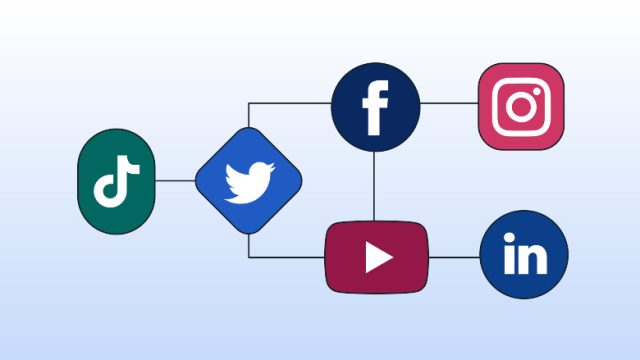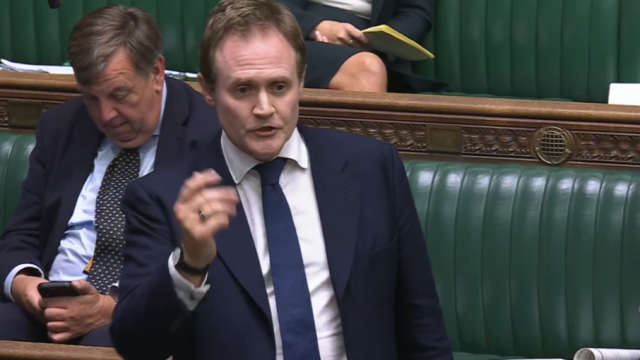Fundamental Change
The online world, once heralded as a democratic forum for dialogue, collaboration, and the free exchange of ideas, is increasingly being poisoned by hostility, polarisation, and personal attacks. Social media platforms, comment sections, and discussion forums have become hotbeds for vitriol, where nuance and empathy are drowned out by insults, tribalism, and performative outrage. This problem is not only degrading the quality of our collective discourse, but also endangering mental health, stifling innovation, eroding trust in institutions and people, and making progress across all domains harder to achieve.
This listing is not a call for censorship. It is a call for self-awareness, shared responsibility, and new mechanisms for healthier digital engagement — starting with a collective acknowledgment: we have a problem.
The Problem in Detail
1. The Decline of Civil Discourse
The foundation of a healthy society is the ability to talk through difference. Disagree, debate, challenge, and refine ideas. But the internet, instead of fostering constructive conversation, has increasingly encouraged division.
Nuance is replaced by slogans. Curiosity is replaced by moral grandstanding. Disagreement is perceived as an attack.
The result? People stop talking. Or worse, they retaliate in kind.
Civility is not just good manners — it's the condition for progress. Without it, we spiral into dysfunction.
2. Algorithms That Reward Extremes
Social media platforms are designed to maximise engagement. What drives engagement? Outrage. Conflict. Controversy. The more divisive the content, the more clicks it gets.
This creates a feedback loop:
>>> Extreme voices get amplified
>>> Moderate or thoughtful voices get drowned out
>>> Performative anger becomes the norm
Over time, people internalise this pattern. They post not to express, but to provoke. They react not to understand, but to dominate. Algorithms are not neutral — they shape human behaviour.
3. Dehumanisation and Anonymity
The lack of face-to-face interaction online leads to the dehumanisation of others. Behind a screen, it’s easy to reduce people to avatars, usernames, or ideological labels. Once dehumanised, it becomes easier to insult, dismiss, or attack.
This dynamic leads to:
>>> Bullying and harassment
>>> Targeted hate
>>> Polarised echo chambers
Anonymity can protect the vulnerable, but it also enables cruelty without consequence. Platforms have done little to create accountability.
4. The Emotional Cost
Constant exposure to hostility takes a psychological toll. The anxiety of being attacked for expressing an opinion. The fear of being misunderstood or misrepresented. The fatigue of endless arguments.
This emotional burden has real consequences:
>>> People self-censor
>>> Important conversations are avoided
>>> Mental health suffers
We are creating an environment where the loudest voices win — not the wisest. And this silences too many.
5. Cultural and Political Paralysis
When people are locked in perpetual outrage, very little gets built. Energy is spent on attacking perceived enemies rather than solving shared problems.
This leads to:
>>> Gridlock in politics
>>> Distrust in media and science
>>> Apathy and disengagement
The inability to engage with complexity — to listen, adapt, and co-create — is a threat to democracy and progress. Our societies can’t function when everyone is yelling and no one is listening.
Underlying Causes
>>> Platform design: Built for addiction, not reflection
>>> Cultural incentives: Reward for outrage, not dialogue
>>> Erosion of shared truth: Facts replaced by factions
>>> Loss of common ground: Identity > ideas
>>> Leadership failures: Public figures modelling hostility
Why This Matters to Everyone
This issue isn’t just about trolls on Twitter.
It affects:
>>> Children and teens learning how to communicate
>>> Educators trying to teach critical thinking
>>> Professionals collaborating across teams and geographies
>>> Citizens making sense of complex challenges
It affects productivity. Innovation. Mental health. Trust. Progress.
If we don’t fix this, we erode the very conditions that allow a pluralistic society to function.
Examples of Harm
>>> Public figures face daily threats and abuse, leading many to step away from public life
>>> Whistleblowers and changemakers are silenced by targeted harassment campaigns
>>> Discussions around race, gender, and politics are reduced to flame wars and culture war tropes
>>> Misinformation spreads unchecked as emotional narratives override facts
We are punishing people for caring — and rewarding those who exploit.
What Needs to Change
1. New Norms of Engagement
We need to reset what “normal” looks like online. This includes:
>>> Valuing curiosity over certainty
>>> Responding with questions, not attacks
>>> Seeing disagreement as an opportunity
It’s not about agreement. It’s about how we disagree.
2. Design for Dialogue
Platform owners must do better. This means:
>>> Changing algorithms to reward constructive engagement
>>> Creating clearer community standards
>>> Offering tools to pause, reflect, and de-escalate
3. Education for Digital Citizenship
Schools, families, and communities need to teach:
>>> Media literacy
>>> Conflict resolution
>>> Emotional regulation
We are digital citizens. Let’s act like it.
4. Leadership by Example
Public figures must model better behaviour.
>>> Acknowledge complexity
>>> Invite discussion
>>> Refuse to inflame
If leaders can’t do this, why should anyone else?
5. A Space for Real Dialogue
We need more spaces — like Ideas-Shared — where people can share, collaborate, and solve without the noise. Where intention matters more than performance. Where agency, not ego, leads. Where outcomes, not outrage, drive momentum.
Your Call to Action
If you’re reading this, you’ve likely felt the weight of online vitriol. You’ve seen how it fractures relationships, polarises communities, and leaves good ideas lost in the chaos.
This listing is your invitation to:
>>> Share your experience
>>> Raise a related issue
>>> Propose an idea to improve digital dialogue
>>> Start a campaign for platform reform
Because change doesn’t start with a perfect solution. It starts with someone willing to say: enough.
Let’s make this a place where we build — not break. Let’s restore civil discourse. Let’s stop punishing people for caring.
The world won’t fix itself. But we can.
Together, let’s lead the way forward.
#ExposeTruth #ShiftMinds #MakeItReal #FixIt






